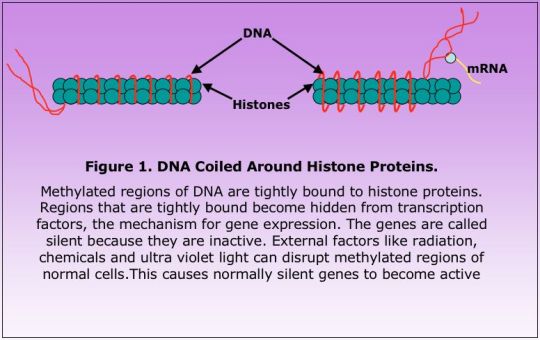Epigenetics Research Explores New Cancer Treatments
The genome consists of the entire DNA content in a cell. The human genome consists of approximately 3 billion bases. Many regions of DNA are simple base repeats that do not represent any gene. Some genes are inactive as defined by the epigenome, which plays a major role in cell differentiation. Each type†of cell contains the same copy of the genome. However, genes that are active in one type of cell, such as a skin cell, are not necessarily active in another type of cell, like a liver cell. The difference is found in the methylation of certain genome regions that cause binding to proteins called histones. Genes that lie within bound regions of the genome are silenced, meaning they are inactive.
The Epigenome’s Relation in Cancer
The epigenome can also affect whether certain individuals will develop cancer. People with the genetic potential to develop cancer may not necessarily become sick because the changes may be located in silenced regions of the genome. However, certain external factors can affect the epigenome, thus activating silenced genes. Tobacco, radiation, ultraviolet sunlight and other chemical or radioactive agents can disrupt normal methylation patterns in a group of cells (figure 1). The aging process also plays a role. Throughout life, cells die and are continually replaced. Over time, the number of cell division eventually leads to a loss in methylation for many cells. It is a reason why skin always exposed to sunlight tends to look older than normal skin. Fortunately damage to the epigenome is reversible.
Cancer Treatments in Epigenetic Studies
Researchers at a number of medical institutions are investigating epigenetic treatments for cancer. Most cancer treatments, like chemotherapy, work by killing cancer cells. However, these treatments may also kill healthy cells. Epigenetic treatments provide a more targeted approach to treating cancer by repairing epigenetic damage. A research team at John Hopkins is working with azacitidine and decitabine. Both medications were found toxic to healthy cells when used in high dosage. However, low dosages of the medications have little effect on healthy cells while repairing epigenetic damage. In vitro studies have shown that specific combinations of both treatments have reduced cultured tumor cells.
Epigenetics as a field has provided a new direction for cancer treatment. It has established that an individual has more control over the potential development of cancer by avoiding factors that cause epigenetic damage.
